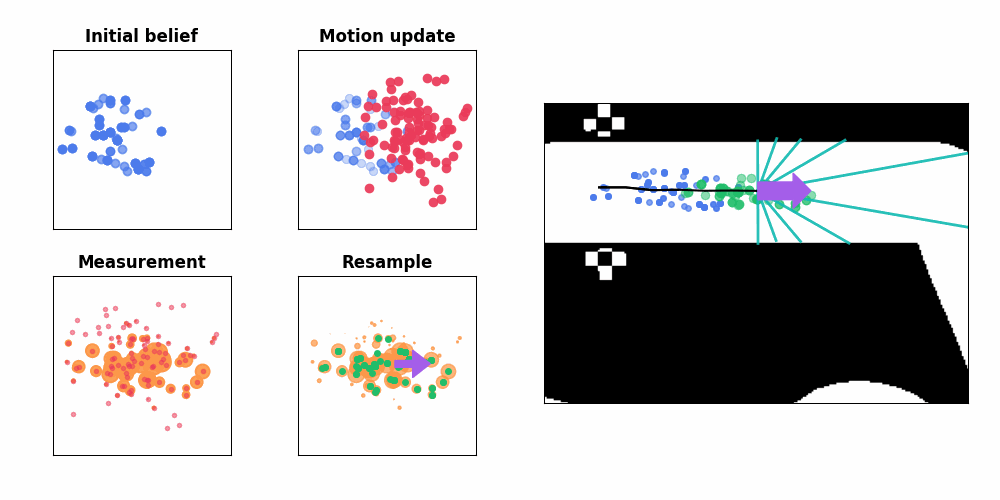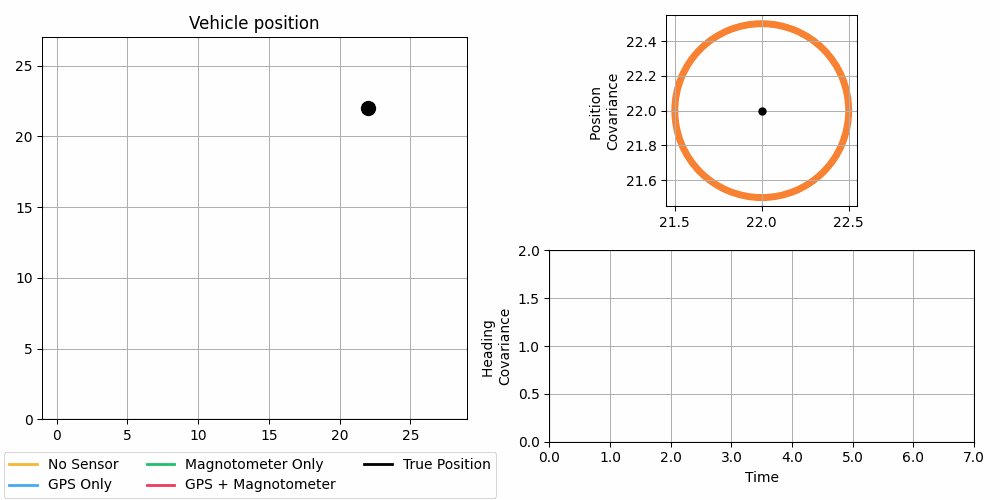This repo provides examples of popular filtering algorithms for state estimation. Currently, the following algorithms are availble:
- Extended Kalman Filter (EKF)
- Unscented Kalman Filter (UKF)
- Particle Filter (PF)
An in-depth note on probability theory and the state estimation equations is provided.
📘 Usage
Run the
RoverTests.pyandRacingTests.pyfiles to test the filters. Run thelinear_fusion_tests.pyandnon_linear_fusion.pyto test the sensor fusion examples.
The task of localising a rover vehicle is used to evaluate the filtering algorithms. The vehicle travels at constant speed with a steering angle input. Non-linear dynamics are used to represent the position updates, based on the rover orientation. The rover receives measurement updates from a beacon that provides a distance and angle from the vehcile. The task is to use these two sources of information to estimate the rovers position. Full equations for the rover, and the derivation of the Jacobians are given in the Rover note.
Since the most common application of the particle filter is robot localisation, an example of autonomous racing is included. The same rover dynamics are used, but a controller that moves the vehicle around a track is introduced. Instead of a beacon, a LiDAR scanner is used and a method is provided to simulate LiDAR scans. The goal of the task is to estimate the vehicle's position as accurately as possible.
Particle Filter:
Extended Kalman Filter Sensor Fusion:
Results from the rover localisation tests.
Particle filter, LiDAR based localisation:
Linear Sensor Fusion
We propose using a venv for package mangaement.







